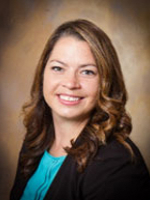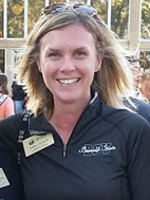Becky Taylor Fellowships
Support your doctoral education by applying for a Fellowship through the Glen Taylor Nursing Institute for Family and Society.
Minnesota State University, Mankato Doctor of Nursing Practice (DNP) students are encouraged to apply for a Becky Taylor Fellowship which financially supports students, and their education and research.
Becky Taylor Fellowships:
- Allow you to research ways to improve health care for families
- Help the health care system meet the needs of our changing society
- Create solutions, bridges gaps, and promote innovative practices
Fellowship funds can be used for tuition, fees, capstone projects, and/or cost of living expenses. Fellowships will be awarded based on application materials and available funds.
If you have any questions, please contact us at taylornursinginstitute@mnsu.edu or 507-389-1165.
Meet Some of Our Previous Fellows:
- AM Roberts
- Abigail O’Leary
- Sharonne Dolechek
- Adriana Wohlhuter
- Abigail "Abby" Simek
- Esi Ezim
- Urji Hussein
- Keri Coon
- Lauren Lehmkuhl
- Alicia Reed
- Marisa Pender
- Jamie Graffunder
- Nkeiru Adoga
- Chelsi Esqueda
- Tiffany Gordon
- Nyeba Manston-Dunbar
- Sarah Ogilvie
- Rochelle Perry
- Cy Schweiss
- Dr. Angie Rickheim ('17-'19)
- Dr. Brittany White ('17-'19)
- Dr. Carrie Yavarow ('17-'19)
- Leslie Darmofal ('16-'17)
- Carrie Dickson ('16-'17)
- Laurel Ostrow ('11-'12)
- Rhonda Cornell ('11-'12)
- Joyce Bredesen ('11-'12)
- Amanda Winrow ('10-'11)
- Sue Field ('09-'10)
- Dana Schardt ('09-'10)
- Ruth Van Heukelom ('09-'10)
AM Roberts

AM Roberts is improving psychosocial care for people with ALS by implementing a validated screening tool in an interdisciplinary clinic.
Abigail O’Leary

Abigail O’Leary is conducting a statewide needs assessment to strengthen NP representation in health policy and advocacy.
Sharonne Dolechek
 Increasing Learner Experience Survey Response Rates Among BIPOC Students
Increasing Learner Experience Survey Response Rates Among BIPOC Students
This project focuses on improving response rates to the Learner Experience Survey among BIPOC students at M Health Fairview, with the goal of creating a more complete and representative picture of their experiences in clinical education. A higher response rate allows for better-informed decisions and more meaningful support for students. The initiative promotes transparency by highlighting how previous feedback has led to real changes, helping to build trust and encourage participation. When BIPOC students feel heard and supported, they’re more likely to thrive, remain in the profession, and provide culturally responsive care to the diverse communities they serve. Creating inclusive learning environments helps ensure that future healthcare professionals are better prepared to care for all families with empathy, understanding, and respect.
Adriana Wohlhuter
 Reducing Complications Related to Intermittent Catheterization: A Quality Improvement Project
Reducing Complications Related to Intermittent Catheterization: A Quality Improvement Project
This project aims to develop an intermittent self-catheterization (ISC) education pathway for patients and nurses. The approach includes structured nurse education, consistent documentation, and a follow-up phone call one week after the initial instruction. This call provides an opportunity to reinforce key concepts, answer questions, and assess the patient's comfort and skill with ISC. By focusing on education and ongoing support, the project seeks to reduce common ISC-related complications such as urinary tract infections (UTIs), trauma, hematuria, catheterization difficulties (e.g., strictures or inability to pass the catheter), and emergency department (ED) visits. It also aims to improve adherence, optimize catheter use, and reduce healthcare costs. Early outcomes show that the addition of a follow-up call improves patient satisfaction and confidence with ISC, reinforcing the value of personalized support alongside standardized.
Abigail "Abby" Simek

Abby Simek, a graduate of Minnesota State Mankato's Pre-licensure nursing program, embarked on her nursing career during the height of the pandemic. She has since gained experience in various healthcare settings, including hospital and pediatric home care. Currently pursuing a Family Nurse Practitioner program at Minnesota State Mankato, Abby's DNP project focuses on enhancing end-of-life (EOL) care for families at Mayo Clinic Health System Mankato. Her passion for family-focused care stems from personal experiences with her own family's healthcare journey, and she is committed to advocating for such care across all settings.
Esi Ezim

Esi Ezim's journey to becoming a professional nurse began in Togo, West Africa. Despite facing numerous challenges, including language barriers and immigration, Esi's determination led her to pursue an associate degree in nursing in the United States. Currently working as a Medical/Surgical nurse at Mercy Hospital in Coon Rapids, MN, Esi is pursuing a DNP degree at Minnesota State Mankato. She aspires to become an advanced practice nurse and a faculty member, contributing to the development of the nursing profession. Esi's DNP project, in collaboration with the Penny George Institute at Abbott, focuses on improving family and societal health by enhancing care for patients with cognitive impairment.
Urji Hussein
 Urji’s clinical project titled "Enhancing Cultural Competency through Human Interaction Simulation," aimed at assessing the impact of human interaction simulations to improve cultural competency among healthcare providers at Health Partners. A needs assessment identified existing gaps and barriers which led to human interaction simulations as the intervention method of choice. She facilitated simulation sessions and established robust communication channels to address challenges. Pre and post-test evaluations revealed positive shifts in attitudes towards cultural competency but also highlighted areas for improvement. Recommendations were provided for enhancing training and addressing healthcare disparities. Overall, this project emphasized the significance of cultural competency in healthcare and underscored the need for ongoing education and development in this critical area. Thanks for your important work Urji!
Urji’s clinical project titled "Enhancing Cultural Competency through Human Interaction Simulation," aimed at assessing the impact of human interaction simulations to improve cultural competency among healthcare providers at Health Partners. A needs assessment identified existing gaps and barriers which led to human interaction simulations as the intervention method of choice. She facilitated simulation sessions and established robust communication channels to address challenges. Pre and post-test evaluations revealed positive shifts in attitudes towards cultural competency but also highlighted areas for improvement. Recommendations were provided for enhancing training and addressing healthcare disparities. Overall, this project emphasized the significance of cultural competency in healthcare and underscored the need for ongoing education and development in this critical area. Thanks for your important work Urji!
Keri Coon
 Keri Coon is a Becky Taylor Fellow and will graduate from the DNP program on May 4, 2024. Her doctoral project is focused on implementing evaluation for joint appointment nurses and the project is being implemented at Mayo Clinic Health System in Mankato. Kari says "Conducting research at the doctoral level has been an amazing experience and I am thrilled to be a part of translating evidence into practice. I am so thankful to be a Becky Taylor Fellow."
Keri Coon is a Becky Taylor Fellow and will graduate from the DNP program on May 4, 2024. Her doctoral project is focused on implementing evaluation for joint appointment nurses and the project is being implemented at Mayo Clinic Health System in Mankato. Kari says "Conducting research at the doctoral level has been an amazing experience and I am thrilled to be a part of translating evidence into practice. I am so thankful to be a Becky Taylor Fellow."
Keri also obtained her Family Nurse Practitioner degree from our program in 2020 and currently works as a nurse practitioner within the State of Minnesota Department of Corrections.

Lauren Lehmkuhl
Project: Impact of Virtual Collaboration Education and Training on Teamwork Perceptions and Attitudes: An Agency for Healthcare Research and Quality TeamSTEPPS Approach Pilot Project

Alicia Reed
Project: Establishing a Structured Onboarding Process for Advanced Practice Registered Nurses in a Small, Nurse-Led Independent Primary Care Practice

Marisa Pender
Project: Take Charge of Your Health & Well-Being: A Multidisciplinary Youth Wellness Program

Jamie Graffunder
Project: A Terminal Ventilator Weaning Educational Intervention for Registered Nurses and Respiratory Therapists in an Adult Medical Intensive Care Unit
Nkeiru Adoga
Project: "Advanced Care Planning: Creating Community Awareness Through Educational Intervention"
Chelsi Esqueda
Project: "Optimizing Care for Patients in the Behavioral Health Unit: One Weighted Blanket at a Time"
Tiffany Gordon
Project: "Increasing Child Abuse Providers in Minnesota"
Nyeba Manston-Dunbar
Project: "Culturally Sensitive Nurse Education to Promote Medication Adherence"
Sarah Ogilvie
Project: "Nursing Staffing to Workload at the Mayo Clinic Health System: St Peter"
Rochelle Perry
Project: "An integrative review with toolkit for patients with a substance use disorder and their families"
Cy Schweiss
Project: "Implementation of Wound Care Program and its Effects on Competency, Confidence and Self-Efficacy in Rural Acute Care Nurses"

Dr. Angie Rickheim ('17-'19)
Capstone Project
Extracorporeal Life Support for Cardiac Intensive Care Unit Nurses
Angela Rickheim developed a program to support nurses, patients and families in the experience of using extracorporeal life support. The focus of her work was partnering with cardiac intensive care unit nurses.
Dr. Brittany White ('17-'19)
Capstone Project
Educational Intervention for Bupropion Abuse Prevention
Brittany White evaluated an education program at two health care organization. Findings suggested that educational sessions on interventions for bupropion abuse prevention increased health care staff self-efficacy in management of bupropion abuse, changed prescribing practices of prescribers, and decreased the number of bupropion prescriptions.

Dr. Carrie Yavarow ('17-'19)
Capstone Project
Increasing Breastfeeding Education Class Attendance in a Women, Infants, and Children's Clinic
Carrie led an implementation project designed to increase breastfeeding class attendance at a Women, Infant, and Children’s Clinic. She worked with clinic partners to support breastfeeding initiatives.

Leslie Darmofal ('16-'17)
Capstone Project
Psychological Distress: Transitioning Patients from Survivorship to New Normal
The continuity of care support for patients and their families during cancer recovery is a population health issue. Greater numbers of people are living as cancer survivors, and may need different types of support and services than are offered for patients newly diagnosed with cancer. The purpose of this research is to see what types of psychological distress occur longitudinally in cancer survivorship and facilitate better communication between patient and provider. This research may allow stronger advocacy for long-term support and services in cancer survivorship. The Psychological Distress Thermometer (National Comprehensive Cancer Network), was a key instrument to assist in gauging patient's perception of psychological distress at the time of their provider appointment. Patients with a prior cancer diagnosis were asked to participate and gauge their level of psychological distress by filling out the psychological distress tool and demographic information related to their cancer, and handing it to their provider. The use of cluster sampling statistics to analyze how patients perceived their coping and distress may give understanding of links between types of survivorship support needed for specific cancers at intervals over time. This research allowed nurses and providers to better understand what types of distress cancer survivors are experiencing longitudinally, and facilitate advocacy.

Carrie Dickson ('16-'17)
Capstone Project
Advancing Healthcare Quality for People on the Autism Spectrum
Nurses have an ethical and legal obligation to address health disparities and ensure healthcare is accessible to all individuals across the neurodiversity spectrum and across the lifespan. To address the sporadic training in healthcare providers, a multidisciplinary community of practice for professionals in all settings and across the lifespan was established to facilitate networking, education, and advocacy related to caring for individuals on the autism spectrum and their families.
Participation in the community is voluntary, open to all healthcare providers without geographical limitations, and involvement may occur at varying levels based on participant's needs. The goal of the community is to improve access to quality healthcare to decrease health disparities in the autistic population as compared with other populations.
Health Professions Autism Network: www.healthprofessionsautismnetwork.org

Laurel Ostrow ('11-'12)
Capstone Project
Effect of Narrative Therapy on Elder Depression and Carer Stress in a Sample of Elders with Dementia
The purpose of this project is to evaluate the impact a narrative therapy intervention has on the variables of depression and stress among people with dementia and depression and their caregivers.
The relationship between depression and dementia is a subject of great interest to clinicians and researchers. The project hopes to understand more about the relationship between these two clinical concerns through the initial screening for depression and then again after the narrative therapy intervention. The possibility that narrative therapy relieves depression and creates a sense of increased meaning in life among cognitively impaired and depressed elders is the primary subject of the investigation.

Rhonda Cornell ('11-'12)
2011-2012 Recipient
Background
Rhonda Cornell, RN, MS, FNP-BC from Bagley, Minn., whose focus is family presence during resuscitation in a rural Midwestern medical center.
Capstone Project
Impact of Adopting Guidelines Supporting Family Presence During Resuscitation on a Rural Midwestern Medical Center
The purpose of this project was to adopt clinical practice guidelines supporting the option of FPDR based on written institutional policy and staff education. The corresponding study sought to answer the clinical question - In a rural Midwestern medical center, how does adoption of a written policy and staff education supporting FPDR based on current evidence impact (a) nurses' perceptions of risks and benefits of FPDR measured pre/post-education using the Family Presence Risk-Benefit Scale (FPR-BS), (b) nurses' report of self-confidence in skills needed for facilitating family centered support during resuscitation measured pre/post-education using the Family Presence Self-confidence Scale (FPS-CS), and (c) the clinical practice of FPDR measured retrospectively by chart review two months pre-intervention, two months during intervention, and two months post-intervention, compared to current practice (no current policy, no staff education, and inconsistent clinical practice of FPDR)?

Joyce Bredesen ('11-'12)
2011-2012 Recipient
Background
Joyce Bredesen, RN, MSN
Capstone Project
A Comparison of Recommended Practice Guidelines for Health Care of the Homeless and the Current Health Status of Homeless Families in St. Paul, Minnesota as Assessed Through the Use of Photovoice Methodology
A qualitative study was conducted using a photo-elicitation approach to generate understanding of the current health care experience of homeless families in St. Paul, Minnesota. A purposive sample of fifteen homeless adult family members who utilize services in a specific community were invited to participate in the project. Categories were identified that focused on community health foci selected from the Guideline: (a) access and continuity of health care, (b) basic needs, and (c) social support systems. The homeless families in this sample reported receiving a certain level of services that are part of the Guideline recommendations.

Amanda Winrow ('10-'11)
2011-2012 Recipient
Background
Amanda Winrow, is from Rushford, MN where she lives with her husband and five children.
Capstone Project
Delivery to Discharge: Implementing Postpartum Guidelines into a Small Rural Hospital
The purpose of Amanda's Doctor of Nursing practice capstone project is to assist postpartum nurses in delivering education to postpartum patients and their families effectively, efficiently, and in a manner based on the best evidence. With more postpartum women being discharged from the hospital earlier following delivery, the ability of nurses to provide care and disseminate postpartum education has become significantly more challenging (Daughtery & Moore, 1998; Janssen, Keen, Seymour, Harris, Klien, & Reime, 2000). There is moderate evidence in the current literature-base indicating that mothers feel they did not receive adequate instruction regarding issues they felt were important (Berger & Loveland-Cook, 1998).

Sue Field ('09-'10)
2009 - 2010 Recipient
Capstone Project
Cultural Competence of Nurses in a Rural Clinic Setting
Sue's doctoral capstone project includes testing methods to support nurses' development of cultural competence. She designed a Discussion Guide to facilitate "lunch and learn" sessions for nurses in clinic settings. The Discussion Guides accompanied DVD's that were created by Stratis Health of Minnesota and featured interviews with Health Care Specialists of the Somali, Hmong, and Hispanic/Latino cultures. Her comparison study examines results from one clinic where DVDs with Discussion guides were used and another clinic where only the DVDs were used. The comparison study will evaluate whether viewing Cultural DVD's with discussion increases cultural competence levels more than viewing Cultural DVD's alone.

Dana Schardt ('09-'10)
2009 - 2010 Recipient
Capstone Project
The Effects of Guided Imagery on Perceived Stress in the Perinatal Adolescent
Dana's capstone project focused on the effects of guided imagery on perceived stress in the perinatal adolescent. Her participants were pregnant adolescent women between ages 15-18 and below poverty level. It is unclear why many pregnant adolescents have poor birth outcomes such as poor mortality and morbidity rates. Following a literature review if was hypothesized that perceived stress was as a possible contributor to poor birth outcomes. Relaxation education is often used in many illnesses with success, but has little research on the use of relaxation techniques in pregnancy. This study used guided imagery relaxation CD. The participants listened three times per week and journaled how they felt once per week for eight weeks. There was no preterm labor or births in this group and the researcher received positive responses from the participants using the CD.

Ruth Van Heukelom ('09-'10)
2009 - 2010 Recipient
Capstone Project
Impact of Selected Patient and Family-Centered Interventions of Press Ganey Satisfaction Scores
Ruth Van Heukelom’s capstone project, Impact of Selected Patient and Family-Centered Interventions on Press Ganey Satisfaction, is being conducted on a Surgical Trauma Unit at a Midwestern hospital. The purpose is to determine if the implementation of a selected patient and family centered interventions impacts patient satisfaction. A nursing intervention with four components was planned with hospital staff. The intervention includes: (a) the addition of a message to the orientation binder welcoming family members as valued partners in the care of their loved one, (b) placement of a pad of paper inviting patients and families to record their questions at the bedside, (c) consistent introductions of nursing staff to patients and families, and (d) the Registered Nurse sits at the bedside and spends at least two minutes of focused time with each patient, and the family as possible, during the first four hours of the nursing shift, asking specifically what they want to accomplish during that nursing shift. Data collected from patients prior to implementation of the intervention will be compared to data gathered after the intervention during the same time period.

